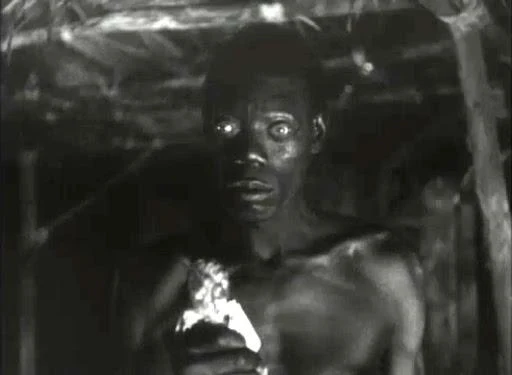 |
| Ann Harding and William Powell in Double Harness |
Double Harness is a rather brittle comedy of manners that might be better known if it hadn't vanished for years, owing to a dispute between producer Merian C. Cooper and RKO. Because it was withheld from release until Turner Classic Movies obtained the rights to it in 2007, we had one less opportunity to see Ann Harding, once expected to become a major Hollywood star on the strength of her looks and her stage-trained voice, the latter a great asset in the early years of talking pictures. Harding gives a good performance in Double Harness, but she lacked the vivid personality of actresses of the period who became bigger stars, like Bette Davis, Joan Crawford, and Barbara Stanwyck, so her career never quite took off. She plays Joan Colby, member of a well-to-do family that finds itself on the skids in the depression, so that she and her giddy sister, Valerie (Lucile Browne), need to marry well in order to regain status. Valerie does marry, but her spendthrift ways keep her on the hunt for money to pay the debts she hides from her husband. Joan is taken with John Fletcher (William Powell), heir to a successful shipping company but more interested in playing polo than in running the business -- or in getting married. Joan overcomes the latter obstacle by a trick: She arranges for her father (Henry Stephenson) to discover her in Fletcher's apartment, which she has more or less moved into, one night. Fletcher does the right thing and marries her, unaware that he's been tricked, but he and Joan also come to an agreement that they will divorce after a suitable period of time elapses. Naturally, they begin to fall more deeply in love, as Fletcher begins to realize that Joan has not only made life more pleasant for him, she has also begun to take a hand in his shipping business. But then Valerie spills the beans about how Joan had tricked Fletcher into marrying her, and an old flame of his, Monica Page (Lilian Bond), takes advantage of his anger and tries to snare him for herself. And so on to the anticipated outcome. Double Harness is a little too arch and stagey for its own good, and the idea that a man might have to marry a young woman because she's found in his apartment at night was a little old-fashioned even at the time, but Harding and Powell do what they can with the material.






























